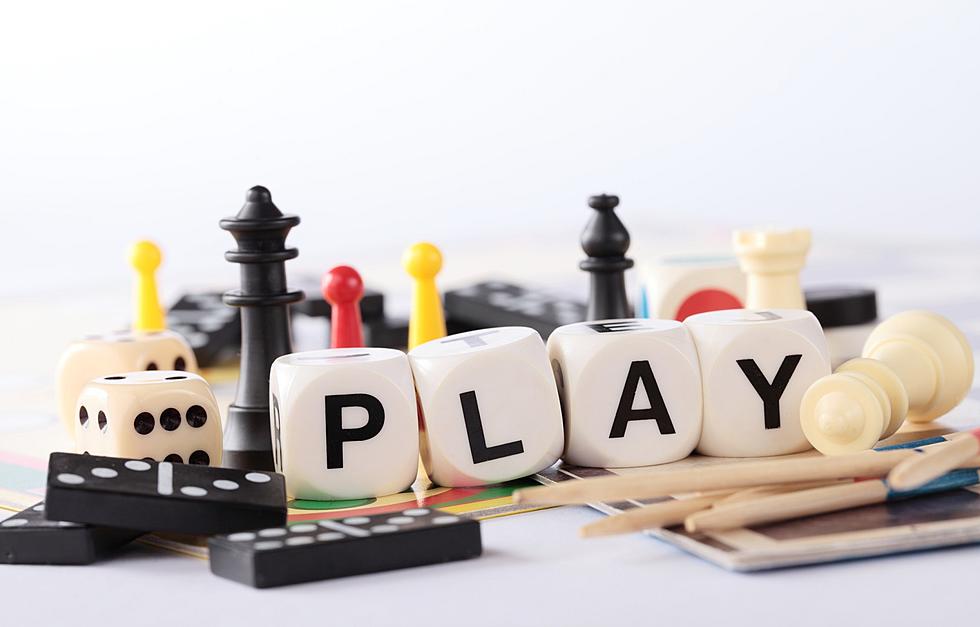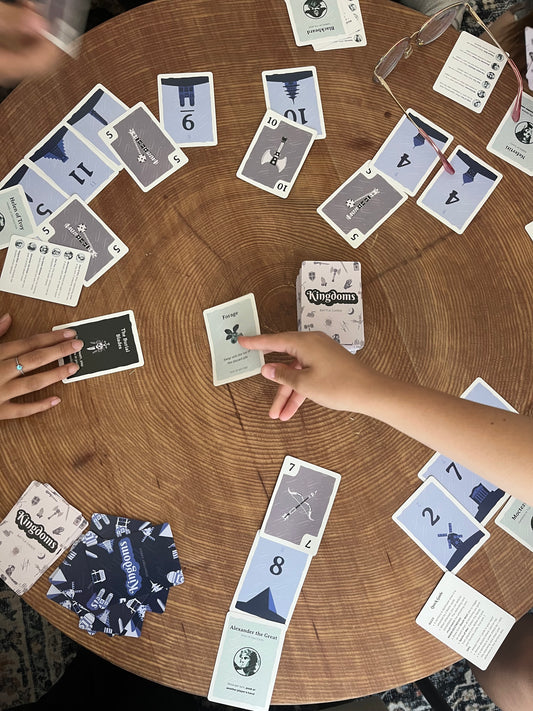The Corporate Garden
"Play is the highest form of research"
- Albert Einstein.
Picture the corporate world as a well tended garden -- a place where order and predictability reign supreme. Just like the neatly arranged rows of meticulously pruned plants, businesses follow structured routines and established norms. Now Imagine a mischievous breeze that rustles the leaves, creating new, vibrant arrangements. This breeze is the embodiment of play in the workplace, shaking up the routine and nurturing creativity. In this exploration of how play can shape the business landscape, we’ll uncover the secrets to fostering creativity, increasing social skills, and decreasing anxiety in the structured world of commerce.
Challenges In The Workplace
Only 32% of full and part-time employees are actively engaged in the workplace as of 2022. In today's fast-paced corporate world, a lack of engagement isn't the only Goliath needing to be conquered. Businesses face an array of challenges, from fostering positive workplace dynamics to maintaining high employee morale and productivity. The need to address these issues has never been more critical, especially in the age of remote work and increasing stress.
Work-related issues, such as boredom, lack of trust or quality relationships with coworkers, lack of inspiration, stagnation, and absence of a sense of excitement in the workday are all too prevalent. According to the National Institute of Mental Health, 19.1% of Americans suffer from an Anxiety disorder, and the American Institute of Stress has reported the workplace as the No. 1 source of stress for American workers, costing U.S. businesses $300 billion annually.
So What Can We Do About It?
Companies such as Disney and Google have a high focus on “fun” and “enjoyment” in the workplace. Apple allows 30 minutes a day for employees to meditate while Nike offers access to relaxation rooms. Tech and sales companies have been changing the workplace dynamic to include a more playful environment from ping-pong tables to game rooms as they attempt to address the common workplace issues of our modern age. So the question is...
Does Game Play Actually Work?

The research says Yes!
According to the Affective Events Theory (AET), the idea that employees' job performance can be influenced by their moods and emotions, gaming in the workplace can lead to increased productivity and creativity. This seems intuitive but it packs a punch. If employees find themselves laughing and “having fun” at the workplace, it reveals the degree of amusement that employees could potentially experience at work. Also, those who enjoy themselves inhale more oxygen and generate more endorphins, which enhances blood circulation in the brain allowing them to think more creatively.
Studies have demonstrated that gaming can significantly increase social confidence, improve team dynamics, act as an icebreaker in professional settings, reduce anxiety, contribute to more productive time during the workday, and increase memory and cognitive skills.
What Type of Games Are We Talking About?
Gaming, particularly through tabletop and social skill-building games, can be a transformative solution for addressing these workplace challenges.
A study done by BYU showed that those who participated in a team-building game prior to working experienced 20% productivity improvement in subsequent tasks.
Here are the top five game types, according to Forbes, employers can recommend to their employees to help manage stress and improve the overall workplace environment.
| Type | Examples |
| Language |
Word scrambles such as Scrabble or Wheel of Fortune |
| Visual-Spacial |
Mazes or jigsaw puzzles |
| Problem Solving |
Chess or Sudoku |
| Memory |
Trivia games like Jeopardy! or Trivia Pursuit |
| Concentration |
Card games such as Kingdoms, match games such as Candy Crush, and endless jumpers such as Doodle Jump |
“It is this same kind of transformation, based on the foundational principle of play, that we suggest has the potential to transform the field of mental health.” - APA
Potential Pitfalls
It is essential for businesses to be aware of potential downsides associated with certain types of gaming. Games that are overly addicting, excessively frustrating, lead to isolation, or are inappropriate for a professional setting can be counterproductive. An overindulgence in gaming can lead to distractions and addiction, which could hinder workplace productivity.
Implementing Gaming in Your Business Culture

Figuring out this optimal balance of work and play will enable businesses to keep employees engaged and happy while not letting this become a hindrance. This threshold will be different for each business.
Here are 10 suggested strategies to incorporate in your business:
- Table-Top Tuesdays: Designate an hour to one afternoon a week for table-top games, encouraging team bonding and trust-building.
- Daily 20-Minute Breaks: Allow each team member to choose a 20- minute game break daily, fostering creativity, engagement, and stress relief.
- Family Game Night: Provide employees with a game to play with their loved ones, enhancing their interpersonal skills and joy
- Monthly Gaming Tournaments: Organize monthly gaming competitions within the company with prizes, fostering friendly rivalries and excitement.
- Game of the Month: Introduce a new game each month to keep things fresh and exciting.
- Mindful Minute Games: Incorporate quick, one-minute games into daily routines to inject bursts of creativity and focus.
- Mentoring Through Games: Establish a mentoring program where experienced employees and newcomers bond over gaming, transferring knowledge, and fostering teamwork.
- Gaming for Goals: Set up a platform where employees can track their personal and professional goals, creating a sense of purpose and progress
- The Creativity Checkpoint: Implement a regular checkpoint where employees showcase their innovative projects.
- Gamified Learning: Use Interactive and educational games to train and upskill employees, making professional development engaging and fun.
Why Wait?
By embracing a culture of gaming in the workplace, businesses can expect to see a positive transformation. Employees will experience reduced anxiety, increased trust and collaboration, and a surge in creativity, which ultimately leads to enhanced job satisfaction and performance. The statistics don't lie; gaming is not only fun, but it's also a powerful tool for creating a more vibrant and successful workplace. So why wait? Start gaming and watch your business flourish.
Kingdoms is a game designed specifically to create moments of high energy and fun, perfect for team bonding and critical thinking.




